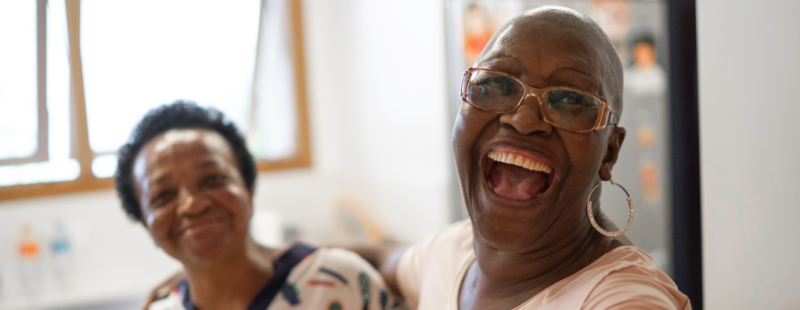Jeremy Porteus, Director, Housing Learning and Improvement Network, talks about findings from a recent Housing LIN report – What role for extra care housing in a socially isolated landscape?
What the report shows
Intuitively, just as we accept the law of gravity but cannot really explain it, we know that extra care housing must reduce social isolation and loneliness.
Next week, the Housing Learning and Improvement Network publishes a short report setting out the case for extra care housing and the role it can play in meeting the goals of the Campaign to End Loneliness.
Prepared for us by the International Centre for Longevity (UK), the report highlights the elements of extra care housing that we think give older people fulfilling, socially-connected lives. However, it also laments the lack of empirical evidence that this housing model combats loneliness and isolation and therefore improves health and wellbeing. Without such evidence will policymakers take us at our word?
There is a strong case to make which, in our report, is based around five groups of factors.
The ethos of extra care housing, the first of those factors, promotes the concept of a home (and community) for life, independence, homeliness and flexible care pathways.
The design of extra care housing schemes promotes social contact through ‘building in’ communal areas and facilities – such as cafes and leisure facilities – that encourage residents to mix. Sometimes these facilities are also open to the wider community.
Residents of extra care schemes can also participate (or not) in a wide range of activities both onsite and in the wider community. These range from onsite exercise classes through to joining local organisations outside the housing development. Although many residents, particularly the younger and fitter ones, will take part in a range of ‘mainstream’ activities off-site, the less active ones can still gain the social contact offered by even relatively low-key activities within the housing scheme – such as exercise classes or quizzes.
With care and support staff available on-site around the clock, new residents have access to some social interaction from the off. Most studies of social wellbeing in extra care note the importance of staff in supporting new residents as they develop and strengthen social relationships. We see this as an in-built sense of community and the fourth building block of social interaction in extra care.
Finally, there is evidence that extra care housing offers improved health and functional ability with, for example, fewer falls and shorter hospital stays. Residents feel more confident about – and are more capable of – engaging in social activities.
What needs to change?
Existing research has shown that older people in extra care housing enjoy busier social lives and stronger relationships. A key 2009 study found that, within 12 months of moving in, more than 40% of residents would turn to new friends amongst their neighbours for advice and help.
Yet despite such research, and evaluations of extra care housing schemes part-funded by the Department of Health that showed a reduced demand for health and social care services amongst residents, there is an under-supply of such accommodation in the UK.
What is more, commercial and funding pressures are leading some developers and providers to question whether future schemes can sustain all the communal elements that help promote social interaction. Those same pressures and the scarcity of places also pose a risk to the resident profile. As also reported in the recent Joseph Rowntree Foundation findings from their ‘A Better Life’ programme, the ethos of extra care supports a mix of care need (from very low to very high), age (from 55 to over 100) and tenure to foster the sense of a mixed but united community.
Extra care housing is an under-developed resource that has been shown to promote wellbeing and health and which, as a model, has many elements that can help combat loneliness and social isolation.





No comments on this article yet. Please feel free to submit a comment below.
By submitting a comment you grant Campaign to End Loneliness a perpetual license to reproduce your words and name/web site in attribution. Inappropriate and irrelevant comments will be removed at an admin's discretion. Your email is used for verification purposes only, it will never be shared.